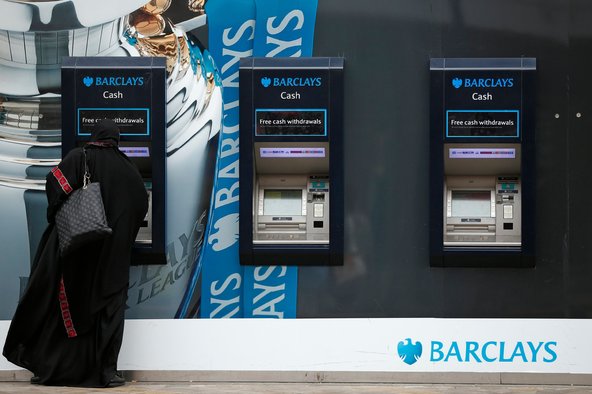 Darren Staples/ReutersBarclays’ investment bank benefited partly from a bullish stock market performance in America.
Darren Staples/ReutersBarclays’ investment bank benefited partly from a bullish stock market performance in America.
LONDON — As European policy makers push financial institutions to cut back on their risky trading activity, some of the region’s largest banks are becoming more reliant on their investment banking operations to bolster performance.
On Wednesday, the British bank Barclays and a Swiss rival, Credit Suisse, both reported strong first-quarter earnings for their investment banks that helped to offset some sluggish growth in other divisions like retail banking and wealth management.
The healthy performance comes despite a push by European politicians to limit firms’ exposure to financial risks and to promote lending to local economies.
New tougher capital requirements have forced European banks to shed billions of dollars of assets since the financial crisis began. A proposed cap on banker bonuses that will become effective at European institutions next year has led to fears of a mass exodus of firms’ top earners to international competitors.
The two banks’ first-quarter earnings reflected the strength of investment banking.
Barclays’ quarterly pretax profit for its investment bank rose 11 percent, to £1.3 billion, or $2 billion, or roughly 74 percent of the company’s combined pretax profit over the period.
Over all, Barclays’ quarterly profit, when adjusted for one-time charges, was £1.8 billion, down 25 percent from the same period last year, which missed analysts’ estimates. The fall was linked to £514 million ($784 million) of costs related to a restructuring that includes 3,800 layoffs and a £235 million ($359 million) charge connected to the value of the bank’s debt.
Barclays’ investment bank benefited from renewed deal activity and a bullish stock market performance in the United States, where it now generates around 50 percent of its revenue. For example, the bank is advising Dish Network on its proposed $25.5 billion takeover of Sprint Nextel. “The reality is that investment banking is becoming more dominant for Barclays,” said Ian Gordon, a banking analyst at Investec in London. “The first quarter was a blowout performance.”
At Credit Suisse, pretax profit in its investment banking division rose 43 percent, to 1.3 billion Swiss francs, or $1.4 billion, partly driven by a strong performance in the bank’s fixed-income sales and trading business. In contrast, earnings from the company’s private banking and wealth management business fell 7 percent, to 881 million francs, over the same period.
Credit Suisse reported a net profit of 1.3 billion francs ($1.4 billion) in the first quarter, compared with a profit of 44 million francs ($47 million) in the same period last year, when the bank booked a loss of 1.6 billion francs ($1.7 billion) on the value of its own outstanding debt.
Analysts said the bank’s strong earnings were a result of a cost-cutting program started by the chief executive, Brady W. Dougan. The company’s investment banking division also benefited from a pickup in global stock markets in the first three months of the year.
“The investment bank was the main driver with impressive cost management,” Kian Abouhossein, a banking analyst at JPMorgan Chase in London, said in a research note to investors.
Shares in Barclays fell 1.3 percent in London on Wednesday, while Credit Suisse’s stock price rose 1.5 percent in Zurich.
Attention will now turn to other large European banks that will report their first-quarter earnings over the next few weeks.
Deutsche Bank, the largest bank in Germany and one with a major investment banking division, will announce its results on Tuesday, as will the Swiss banking giant UBS. Analysts are expecting a fall in UBS’s first-quarter net profit as the company continues to carry out sharp reduction in its investment bank, which includes around 10,000 job cuts, to focus on its wealth management business.
The continued reliance on investment banking at some of Europe’s largest institutions follows efforts by politicians and top banking executives to reshape the Continent’s financial sector.
Some banks, like UBS and Royal Bank of Scotland, are reducing their exposure to risky trading assets, while others, like HSBC and Standard Chartered, are increasing their operations in fast-growing emerging markets.
Antony P. Jenkins, Barclays’ chief executive, also is trying to rehabilitate the company’s image after a series of recent scandals. Last year, the bank agreed to a $450 million settlement with the United States and British authorities after some of its traders were found to have manipulated crucial global benchmark rates for financial gains.
Article source: http://dealbook.nytimes.com/2013/04/24/barclays-and-credit-suisse-post-strong-earnings-in-investment-banks/?partner=rss&emc=rss